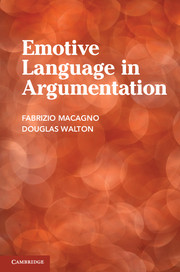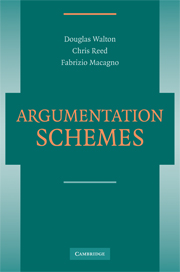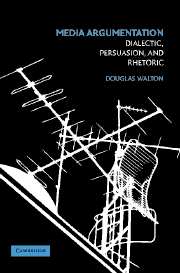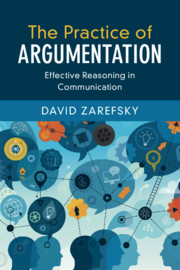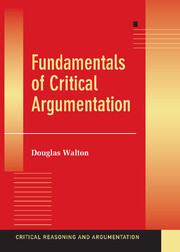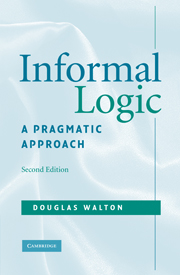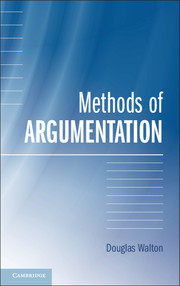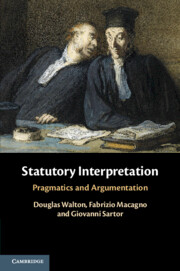Emotive Language in Argumentation
$30.99 ( ) USD
- Authors:
- Fabrizio Macagno, Universidade Nova de Lisboa, Portugal
- Douglas Walton, University of Windsor, Ontario
- Date Published: No date available
- availability: This ISBN is for an eBook version which is distributed on our behalf by a third party.
- format: Adobe eBook Reader
- isbn: 9781107496842
Find out more about Cambridge eBooks
$
30.99 USD
( )
Adobe eBook Reader
Other available formats:
Hardback, Paperback
Looking for an examination copy?
This title is not currently available for examination. However, if you are interested in the title for your course we can consider offering an examination copy. To register your interest please contact [email protected] providing details of the course you are teaching.
-
This book analyzes the uses of emotive language and redefinitions from pragmatic, dialectical, epistemic, and rhetorical perspectives, investigating the relationship between emotions, persuasion, and meaning, and focusing on the implicit dimension of the use of a word and its dialectical effects. It offers a method for evaluating the persuasive and manipulative uses of emotive language in ordinary and political discourse. Through the analysis of political speeches (including President Obama's Nobel Peace Prize address) and legal arguments, the book offers a systematic study of emotive language in argumentation, rhetoric, communication, political science, and public speaking.
Read more- Shows how uses of emotive language and persuasive definitions work as argumentation tactics in virtually every argument concerning everyday matters such as politics and law
- Proposes a multidisciplinary approach to emotive language, and provides both a theoretical and practical understanding of how linguistic mechanisms work
- Uses many contemporary examples and shows how they can be analyzed to reveal the special characteristics of these tactics of argumentation
Reviews & endorsements
“Very often, words have emotive meanings and present certain values and assumptions as uncontroversial, thus functioning as persuasive (and potentially manipulative) instruments of everyday argumentation. However, an in-depth study of this important and potentially dangerous property of words is still lacking. Macagno and Walton fill this gap with their brilliant and exhaustive study of the relationship between words’ meanings and emotions, values, definitions, presuppositions and dialogue commitments.”
– Manfred Kienpointner, University of Innsbruck, Austria
See more reviews“Emotive language and definitions do not stand in opposition to reasoning; they are involved in virtually all cases of reasoning and argumentation about personal and public life. Macagno and Walton explain why this is so, provide a comprehensive account of how these tools are used, and offer guideposts for argument evaluation that take the role of language seriously.”
–– David Zarefsky, Northwestern University
“Macagno and Walton demonstrate how words can be powerful in evoking emotions and how redefining them can be an act of persuasion. The book is a logico-pragmatic-rhetorical tour de force exploring how emotive meanings are intertwined with definitions, with the dynamics of presupposition, and with implicitness in argumentation. A journey well worth taking for argumentation scholars and linguists interested in evaluative language.”
–– Andrea Rocci, University of Lugano
“This book’s title understates its significance. The authors make a compelling case that all language in public argument is emotive language. Richard Weaver’s metaphor that language is sermonic is surpassed with a detailed and systematic explanation of how the language of public argument is saturated with values and ideological preferences. Moreover, the authors demonstrate how the tools of logic can be used to understand and evaluate such emotive language. This book is a great leap forward for scholars of logic and argumentation.”
–– Edward Schiappa, Massachusetts Institute of Technology
Customer reviews
Not yet reviewed
Be the first to review
Review was not posted due to profanity
×Product details
- format: Adobe eBook Reader
- isbn: 9781107496842
- contains: 25 tables
- availability: This ISBN is for an eBook version which is distributed on our behalf by a third party.
Table of Contents
1. When words are emotive
2. The emotions in our words
3. When words are reasoning
4. The acts of defining
5. What our words hide: presupposition and dark-side commitments
6. Dialogues and commitments
7. Metadialogues and redefinitions.
Sorry, this resource is locked
Please register or sign in to request access. If you are having problems accessing these resources please email [email protected]
Register Sign in» Proceed
You are now leaving the Cambridge University Press website. Your eBook purchase and download will be completed by our partner www.ebooks.com. Please see the permission section of the www.ebooks.com catalogue page for details of the print & copy limits on our eBooks.
Continue ×Are you sure you want to delete your account?
This cannot be undone.
Thank you for your feedback which will help us improve our service.
If you requested a response, we will make sure to get back to you shortly.
×
